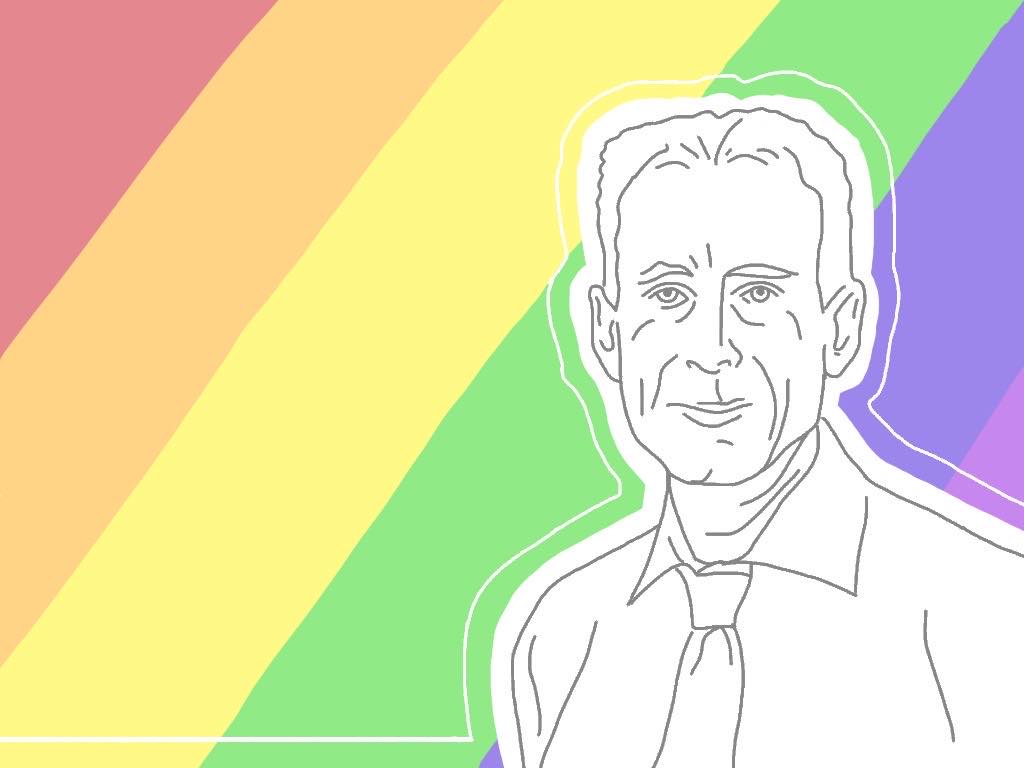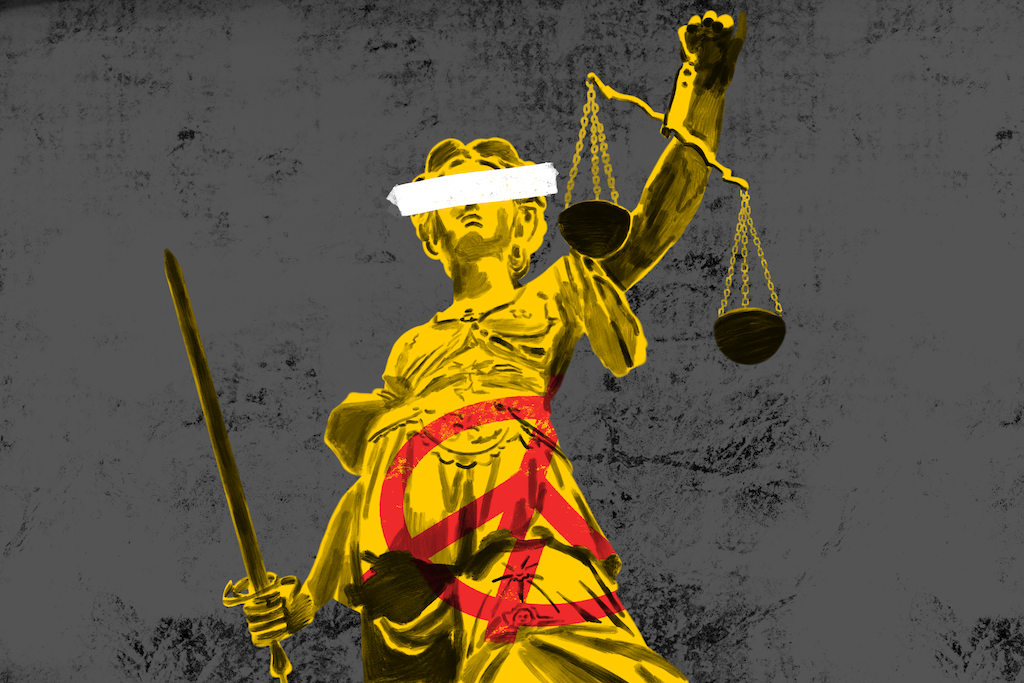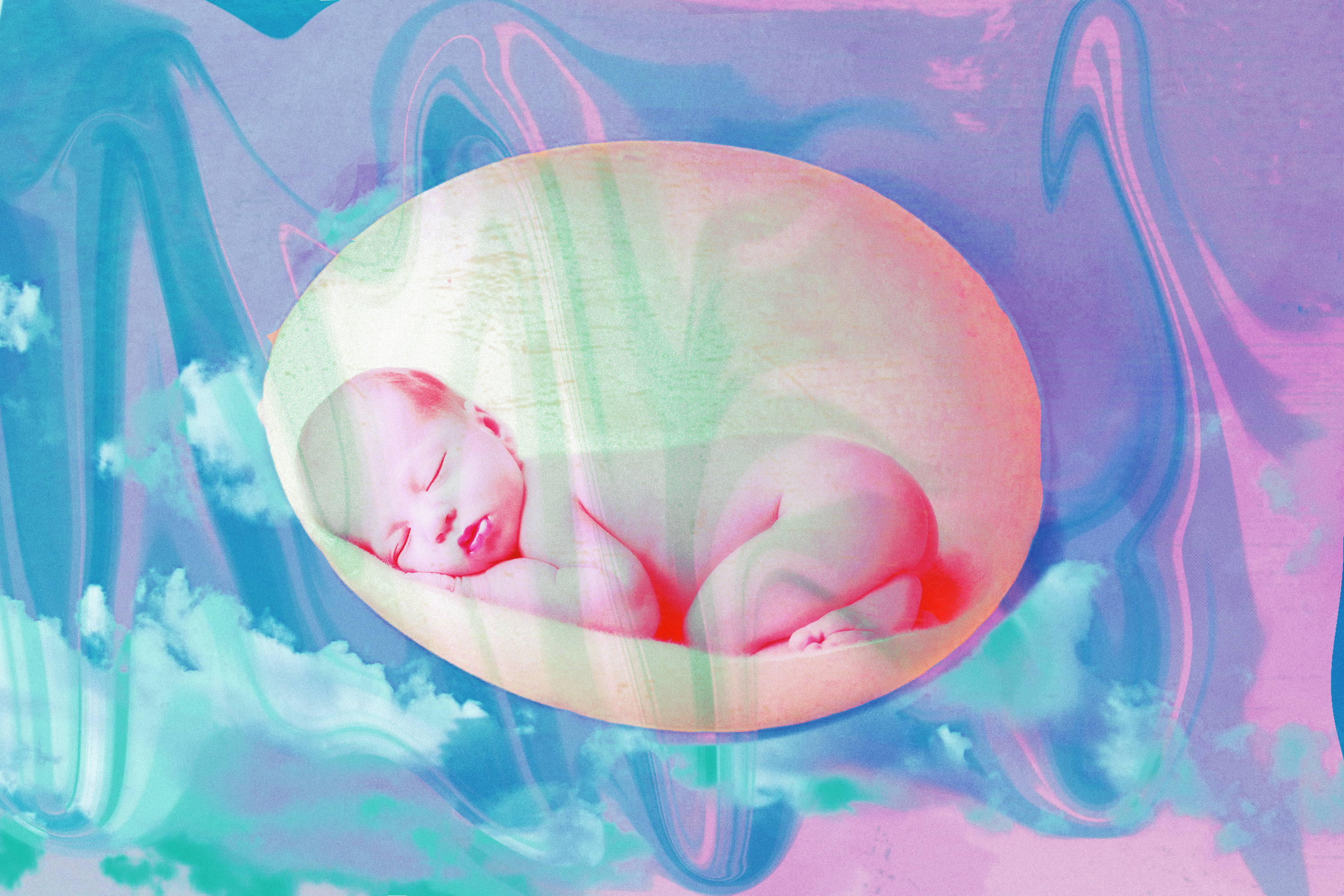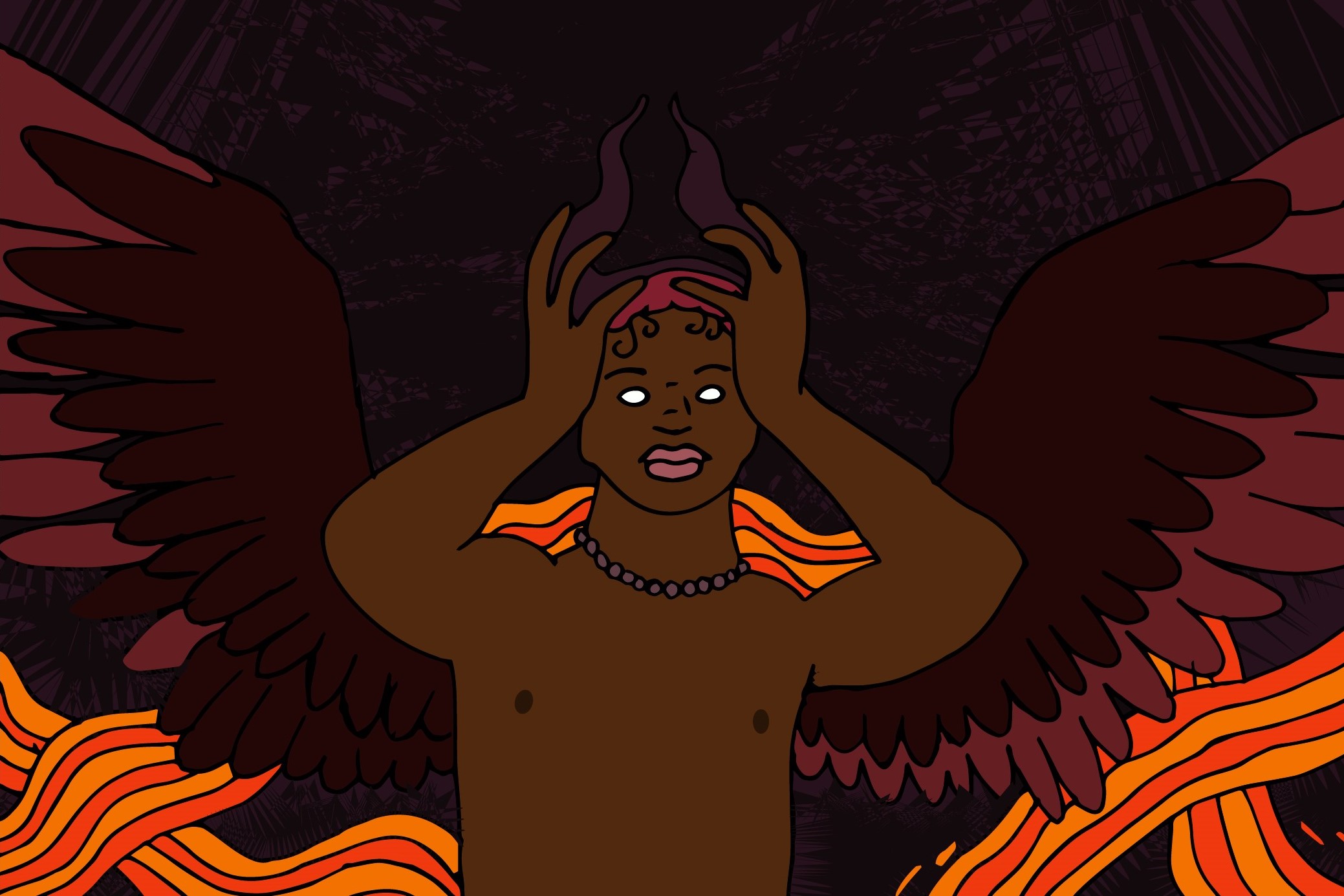
“I get a constant deluge of death threats”
Robert Mugabe was still alive when I spoke to Peter Tatchell back in late August. We had spoken about the former Zimbabwean President during our conversation, specifically Tatchell’s two attempts at placing Mugabe under citizen’s arrest, first in London in 1999, and again in Brussels in 2001. After the dictator’s death a few weeks later, I wondered what Tatchell’s reaction would be. As it turned out, BBC News had the same thought. Watching the campaigner calmly reflect on Mugabe’s legacy with anchor Carrie Gracie, the unfamiliar viewer might easily mistake him for a mild-mannered academic. There is an attention to detail with everything Tatchell says, and when I ask him about his attempts to arrest Mugabe, he speaks with this same measured precision.
He tells me that he and several members of the group ‘OutRage!’ decided to ‘have a go’ after receiving requests from Zimbabwean human rights activists. As with many of his campaigns he tells me, support was hard to come by. ‘I tried to interest other groups and activists, but all were too nervous or afraid’, he says. While most people might have given up at this point, Tatchell decided to go ahead with the plan. As Mugabe’s limousine drove through London, Tatchell jumped out in front of the car, forcing it to stop, whilst other members of the group ran behind the car leaving it unable to move forwards or backwards. ‘I opened the left rear car door – amazingly it was unlocked. I held out my left hand with an open palm to show I didn’t have a weapon and with my right hand I gently took Mugabe’s arm and said to him: “President Mugabe, you are under arrest on charges of torture. Torture is a crime under international law. I am now summoning the police.”’ Did Mugabe retaliate? Not according to Tatchell. ‘He held up his hands to shield his face [and] looked like a frightened ten-year old kid’. If the memory of this dramatic moment brings him any sense of satisfaction, he does nothing to show it. Instead, he remembers thinking of Mugabe, ‘now you know what your victims feel’.
Since his arrival in London in 1971, Tatchell’s activism has been shaped by a willingness to put himself in extreme danger for the sake of a cause. A fellow activist from the early 1970s remembers this sense that Tatchell was ‘different’ from the start. ‘We were mainly picketing London pubs which wouldn’t serve lesbians. He went off to East Germany and held a one-man gay lib demo in Alexanderplatz before being bundled away by the Stasi.’ Oddly, while in Berlin this summer, I stumbled across a photo of Tatchell from this time in a museum.
Zimbabwe, Russia, South Africa, Berlin. There are few places it would seem which are completely untouched by Tatchell’s activism. His unrelenting resolve to fight injustice across the globe is truly remarkable. Whilst most of us would condemn apartheid and homophobia, it is another thing to travel around the world, placing oneself in huge danger, in order to stand up for human rights. When I ask whether he has even been tempted by the idea of a quieter life, he is quick to point out that others have it far worse. ‘I’ve never been jailed or tortured. I’ve got off relatively lightly.’ He refers to the plight of activists in Russia and Iran, where the dangers involved are undoubtedly more serious, but I would question his definition of ‘relatively lightly’.
By his own count, over the course of fifty-two years of campaigning, Tatchell has been physically assaulted over 300 times. ‘There have been over 50 attacks on my flat, mostly involving rocks and iron bars going through my windows, but also three arson attacks and a bullet through my front door.’ There have even been periods, he tells me, where he has had to be under armed police guard. In previous interviews, Tatchell has spoken of an attack by neo-Nazis on a 2007 pride march in Moscow which left him with permanent eye and brain damage.
The week that we talk, the journalist Owen Jones is attacked outside a London pub. I ask Tatchell if he is more conscious of his personal safety recently, but he is clear that he has long since got used to a certain level of threat in his life. ‘I get a constant deluge of hate mail and death threats. It’s been going on for nearly forty years and been almost relentless’. He traces this back to the 1980s, a time in which the AIDS epidemic and zealously homophobic right-wing newspapers fuelled anti-gay discrimination. In the 1990s, the Daily Mail referred to him as a ‘homosexual terrorist’, and the Daily Express denounced him as an ‘enemy of the people’.
Why does he think the media particularly singled him out? ‘A lot of the positions I’ve taken have been outlier and left field,’ he says, ‘beyond the mainstream and questioning the mainstream. That’s made me a target.’ The British Social Attitudes survey consistently found that at least half of the population throughout the 1980s believed ‘sexual relations between two adults of the same sex’ to be ‘always wrong’. As one of the most visible and active LGBT+ campaigners in the country, Tatchell was a lightning rod for this prejudice. ‘Sometimes I’ve found it very hard to cope with because I’ve often not had much in the way of messages of support’, he says. The attacks on him by the press produced a ‘toxic hateful atmosphere’ he believes, one which ‘encouraged the many violent assaults that I subsequently experienced.’
As reports of hate crimes against LGBT+ people have increased in recent years, this ‘hateful atmosphere’ which Tatchell refers to is clearly not a thing of the past. However, Tatchell’s message of LGBT+ liberation is now much closer to mainstream opinion in this country. His human rights group, the ‘Peter Tatchell Foundation’, includes high-profile names like Joanna Lumley and Joan Bakewell amongst its patrons. There were even rumours he might be headed for a knighthood. Has the Queen popped the question? ‘I have on three separate occasions over the last decade or so had a phone call asking if I’d be “minded” to accept respectively, an OBE, a knighthood, and a peerage’, he tells me, although he is far from certain these were genuine offers. ‘The person concerned was very reluctant to give me their name or who they were phoning on behalf of.’ Unfortunately for the Cabinet Office, he has no intention of accepting. ‘I could never accept any honour that has the title ‘British Empire’ in it’, he says, perhaps unsurprisingly. ‘I’ve fought all my life against imperialism and for decolonisation and for the rights of subjugated people to have self-determination. The British Empire stands for everything I oppose.’
At 67, thoughts of retirement would be expected, but Tatchell clearly has no plans to take a step back from activism. Whilst the citizens arrests and visits to Moscow may grab the headlines, much of his work goes under the radar – in the last few years he tells me, much of his time has been spent helping LGBT+ people from places like Uganda and Saudi Arabia win asylum in the UK. As Brexit continues to consume nearly all political and media attention, the appalling treatment of LGBT+ asylum seekers by our government is one of several scandals which have slipped through the cracks. Home Office figures revealed that at least 3,100 asylum claims by lesbian, gay, bisexual and transgender nationals from countries where consensual same-sex acts are criminalised were turned down in the years 2016-18. Tatchell estimates he has personally helped hundreds of these asylum seekers to successfully escape the threat of arrest and death in their home countries. ‘It’s incredibly uplifting to think I’ve played a small part in helping secure them a safe haven from their persecutors’.
Though there is something of the saint about Tatchell (he still lives in the one-bedroom flat in Elephant and Castle he moved into back in 1978), success still matters to him. ‘Gay law reform, the end of apartheid, the defeat of the Poll Tax, improved legislation for women’s and ethnic minority rights’ – these achievements have been vital in sustaining him over the years he tells me. I was not surprised to read, given the level of violence and threat he has endured, that Tatchell suffers from post-traumatic stress disorder (PTSD). Clearly, without these victories, the decision to continue his activism would not be as straight-forward.
When I ask if he can remember the moment in which he decided to devote his life to human rights campaigning, he answers almost immediately. ‘My earliest and most significant influence was learning about the bombing of a black church in Birmingham, Alabama, in 1963.’ Tatchell read about the 16th Street Baptist Church bombing, a racist attack carried out by four Ku Klux Klan members, as an eleven-year-old growing up in his native Melbourne. He remembers realising that the youngest of the four victims, Denise McNair, was the same age as him. ‘It profoundly shocked me. I thought, how could anyone kill another human being, let alone four young girls in church on a Sunday morning?’ This led to an interest in the American civil rights movement, one which Tatchell tells me became the template for all of his subsequent activism.
As we reach the end of our conversation, I realise that I am still left with my biggest question. Despite his lucid explanations of what inspires and sustains his activism, I am still none the wiser as to how Tatchell lives the life that he does. He is truly a unique presence in British political life, a survivor of decades of abuse and violence. As the interview draws to a close, he asks if he can finish with his motto: ‘Don’t accept the world as it is. Dream of what the world could be, and then help make it happen.’ It sounds like a motto you would see on fridge doors up and down the country, but Peter Tatchell can truly claim to have lived it.
For more information about Peter Tatchell’s LGBT+ and other human rights campaigns, please go to his website: https://www.petertatchellfoundation.org.
Words by Jack Womack. Artwork by Eve Rooney.







